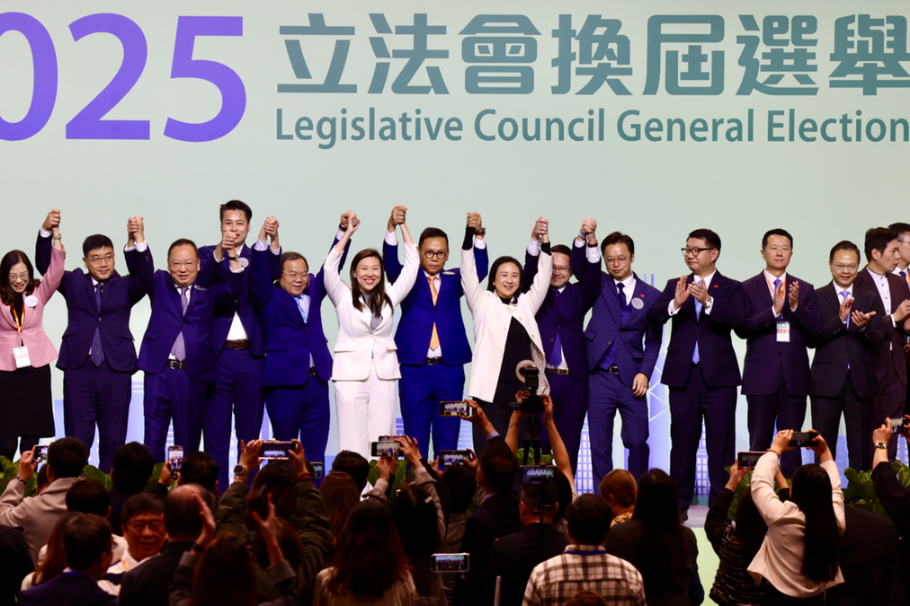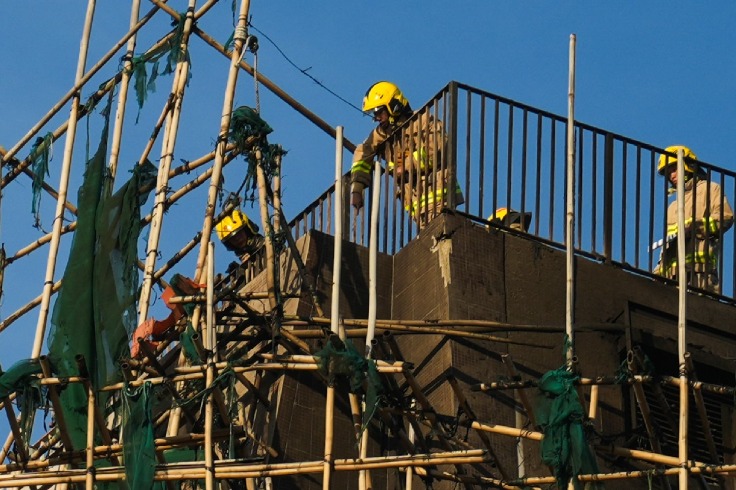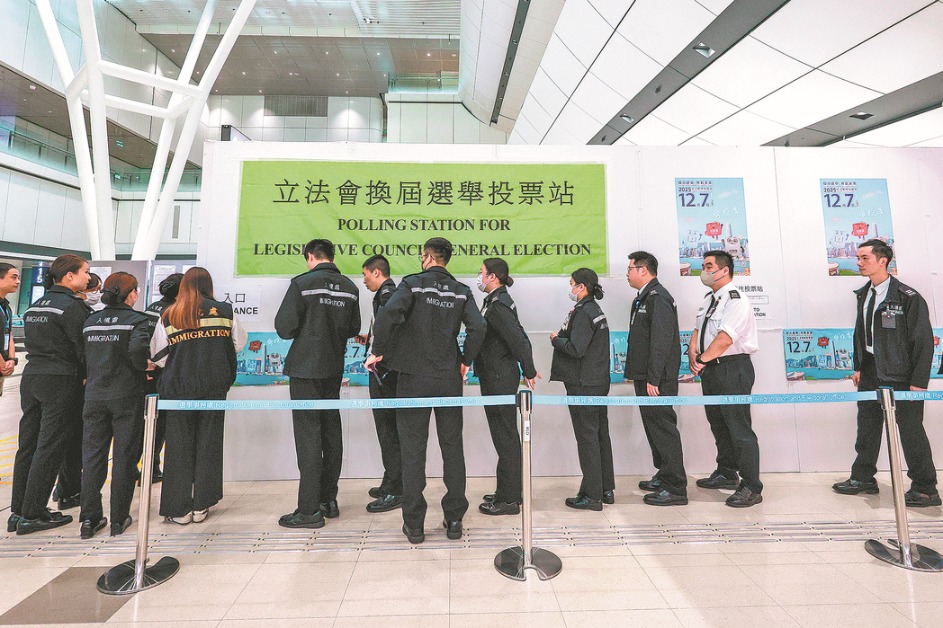Faced with hate, wise words are the weapon of choice
Many young Asian Americans are finding that learning debating skills increases their self-confidence

When Karen Wang was in third grade, her teacher told her mother that her reading ability was two levels lower than that of children of the same age.
This took her mother, Helen Wang, back to her own experience when she first arrived in North America as a student.
"When we first started learning English we paid little attention to speaking, only writing and grammar. It would be too difficult for me to fully express myself, let alone integrate into American society."
Helen Wang then developed into the stereotype of Asian students: quiet and studious.
"I really hope that our next generation can say out loud what they think," she says. "I hope the next generation of Asian Americans can have a better position in society."
With that in mind, Helen Wang decided to have her daughter learn debating skills.
Learning such skills is now popular among young Asian Americans.
"In February we went to Harvard to take part in a global debate competition and noticed that about onethird of the children were of Asian descent," Helen Wang says.
Asian Americans make up a significant portion of the USA Debate Team's members, the national debate team that represents the US in international competitions. In the class of 2022, six of the 10 team members were Asian Americans; in 2021 six of the 12 team members were Asian Americans.
Every year there are likely to be at least four or five students in the USA Debate Team who are Asian American, including East Asians, South Asians and Southeast Asians, says Brian Zhou, a member of USA Debate for two years, and who captained the team as it finished runner-up in the Germany EurOpen Invitational in 2018.
"It does seem that there are in general more minority students in debate, and I think Asian Americans have been a very large demographic makeup," says Zhou, who is also the founder of Project Dialogue, a debate education group known for its many Asian American-oriented debate camps, but which is open to everyone.
Asian students tend to be viewed as more passive or quiet, or not as engaged politically and socially, Zhou says. They tend to be viewed more through the lens of the model minority trope, which seems to say that the typical Asian student is good at studying and doing math, regarded as a "perfect minority" that does not challenge societal constructs or oppressive systems. Instead, they "just keep their head down and work", Zhou says.
"I think that is untrue, and I think the stereotype is changing."
Zhou says, "Debate is perhaps a less traditional area of extracurricular activities and is right outside the typical model minority sticker types of math and science."
At the same time, Zhou says, he has seen students who arrive at debate camps have trouble speaking up for themselves and lack self-confidence.
"What we can do as students helping other students with Project Dialogue is to give them a space to learn otherwise, to think otherwise, and try their best to develop a community where we are all working toward a social cause, with our voices out and our fist up."
Margarita Artoglou, a debate instructor, says debate education has the potential to challenge and break stereotypes often associated with Asian children.
Artoglou, who works at Early Scholars, a school in Queens, New York, near which many Asian Americans live, says she has seen many Asian students come in "very shy, very unsure of themselves".
"They don't really want to speak, or they tell me 'I don't have anything to say'."
Bringing out qualities
However, after learning debating skills for a couple of weeks or months, "I can't get them to stop talking", Artoglou says.
"The personalities of these kids are just astounding. They make me laugh. They are just so funny and so opinionated. It's amazing to see."
Debate helps to bring out the qualities in a child that are already there, and they just need a little practice and encouragement to express those aspects of their personality, she says.
When Artoglou first started taking part in debate competitions at the Bronx High School of Science there were quite a few Asian students in her program, she says. However, as she ventured to other states and schools for competitions, she noticed that the number of Asian students began to dwindle. It became apparent that debate competitions were a very "white-dominated space".
"If you go to a debate competition, at least in my experience, when I went to debate competitions elsewhere, it was mostly white students. There weren't a ton of students of color."
Now, as a debate instructor at Early Scholars, Artoglou has a class of about 10 students, nine of whom are Asian.
Teaching Asian students has been "the majority of my experience in the past five years (since) I've been working only with Early Scholars", Artoglou says. "From what I've seen from our program and what's going on in our borough of Queens, I've been seeing a lot more participation of Asian students in the debate world."
Julio Cordero, another debate instructor at Early Scholars, says that since he was in middle school the many disparities between children of color and white children have been apparent.
When the young Latino attended debate tournaments on Saturdays, his coach would always emphasize the importance of dressing professionally, and he did not think twice about it. However, when he arrived at the tournaments he saw many white students wearing casual clothing.
When he asked his coach about it, his coach said, "That's just how it is, unfortunately."
"This bothers me," Cordero says. "I need more kids of color to be a part of the debate." He started to go back to campus after school to coach students of color in debating, and coached children of color free of charge during summer camps to encourage them to take part in debates. With the same aim in mind, he now teaches Asian American children.
Artoglou says she was always pleasantly surprised to see her students experiencing changes because she believes debate can equip young Asians with the tools they need to be effective advocates for themselves and their communities, especially in the face of the rising incidence of hate and discrimination against Asian Americans.
"I think the most important thing debate really can do for these students is to give them the confidence to say when something is wrong or to speak up when they see an injustice happening somewhere."
Most Asian American students are aware of the resentment some people harbor against Asian Americans. However, debate students are likely to know more about it "because they have been studying these social justice issues that have been under the surface for so long that they kind of had a better introduction to it", Artoglou says.
"So when it started to happen, it wasn't like it just came out of the blue. They had already been aware of many of the social justice issues that faced our society, so they were equipped to deal with it."
Cordero says, "Going to debate and debating against other kids makes you voice your opinion." When it comes to Asian hate incidents, young Asians learning debating skills are able to "speak on that issue and convince other people that this is wrong, and say and voice how they really want to feel", he says.
Debate gives young people the confidence to speak up and shows them "how to basically voice your opinion in a persuasive way so that people can really understand you", Cordero says.
Zhou says that when he was studying social anthropology and history of science at Harvard College, the first way in which debate helped him was that he had "a vocabulary around social theory and political understanding, to give a name to everyday events or news articles".
The term Asian American is in itself very homogenizing, Zhou says. "There are so many groups covered under that. People have different experiences." Speaking of his own experience as a Chinese American, debate training is helpful for "naming the world around you and identifying the issue, to begin with", he says.
"It's a diagnosis. I think at one point in my life I might have been reluctant to say anything or I might have just walked away, but now I think I would be more likely to call that out and say, 'This is a problem.' I'm not afraid to say something about it."
Expressing opinions
Amid anti-Asian discrimination, Kansen Chu, a former member of the California State Assembly, says learning debating skills can give young Asians the confidence to express their opinions and the ability to express dissatisfaction in the face of discrimination.
When applying for college admission, an applicant's participation in public service and their understanding of society are also valued. Taking part in debate competitions can also help students absorb knowledge related to society and history, Chu says.
Helen Wang says learning how to debate also aids in communication within families. "Many Asian children face difficulties in communicating with their families. Some children are American-born Chinese, but their parents' English isn't that good, so they have no way of communicating."
Chu says, "Public speaking ability can enhance children's ability to express themselves, and I think this is very important training."
When you open Helen Wang's social media account you can see that she has documented much of her daughter's journey in learning debate. After about three years of learning, Karen Wang has won several awards in debating competitions.
By the time she reached fifth grade, Karen Wang, once weaker in reading than her peers, was two levels above them, her teacher said.
"It's a good thing we insisted on her studying debate," Helen Wang says.
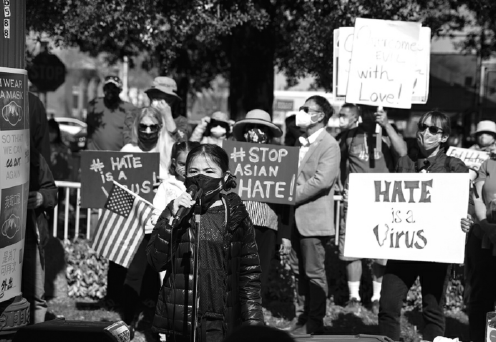
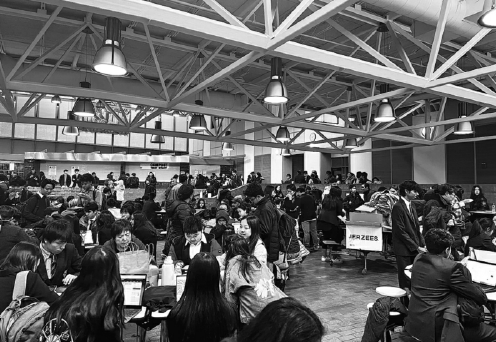
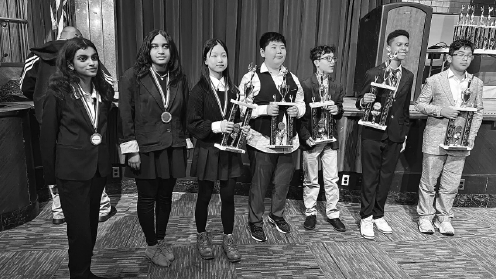
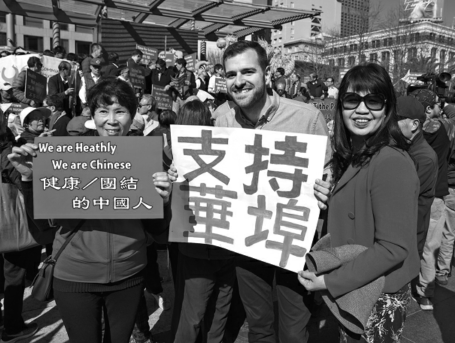
Today's Top News
- Japan 'locked' in its historical amnesia: China Daily editorial
- China brings home 1,178 telecom fraud suspects from Myanmar
- CPC Central Committee holds symposium with non-CPC personages on economic work
- CPC leadership holds meeting on 2026 economic work, regulations on law-based governance
- China's foreign trade up 3.6% in first 11 months of 2025
- China rejects Japan's radar claims
















